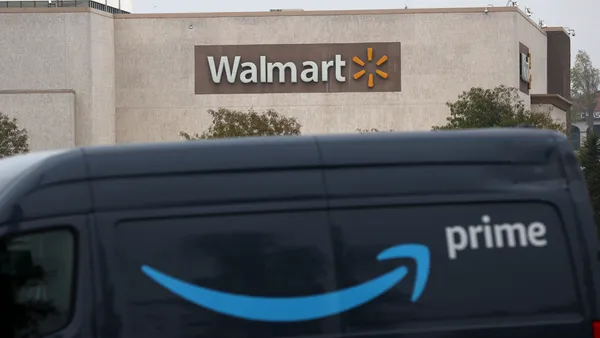Dive Brief:
- Many food industry leaders have embraced sustainable development and generally started working toward alignment with larger international accords, but much more work is needed, according to a study from the Barilla Foundation. The Italy-based group looked at brands' progress in working toward the United Nations’ Sustainable Development Goals and the Paris Climate Agreement mandates.
- There are also areas in which companies don't provide enough information about their efforts, the study found. These include a lack of detailed supply chain analysis by product line and source region, as well as insufficient evidence of companies' corporate citizenship. The study suggested developing a common reporting framework for this kind of information.
- The study looked at 10 companies — Ajinomoto, Barilla, Carrefour, Danone, Kellogg’s, Honest Tea, Nestlé, Tesco, Unilever and Walmart — and evaluated them across four categories: health impacts of products and strategies, production sustainability, supply chain sustainability and corporate citizenship.
Dive Insight:
The Barilla Foundation underscores that while there is indeed ample room for growth in terms of sustainability efforts, companies have not stagnated in their efforts — despite continuing reports showing companies falling short of goals. The 10 companies the research foundation reviewed are already well on their way to adapting to the environmental challenges that the world’s food systems are facing.
In fact, the report showed these companies “broadly endorsed sustainable development as a core business concept, and accept the need for co-responsibility in their supply chains.”
Nevertheless, the report says there are areas where even the world’s leading sustainable companies can improve. Beyond transparency in the supply chain, companies should make additional efforts to assess and explain the impacts of their products on the health and well being of customers, and create a common language with which to report progress, allowing for comparisons between corporations.
To help companies worldwide adapt to a global consumer base that demands sustainable practices, the Barilla Foundation is working to bring attention to the subject through publishing reports and working with lawmakers to affect change. To date, the organization has yet to elicit significant change from legislative bodies — although the group said its home country of Italy passed some legislation dealing with food waste following the publication of the sustainability report.
Italy’s Barilla Foundation is not alone in its efforts to call attention to the global sustainability crisis. Most recently, One Planet Business for Biodiversity, or OP2B, launched Sept. 23 at the United Nations Climate Action Summit to put together an action plan for major CPG companies.
Some groups are pointing a spotlight on where companies are falling short in their efforts. Earlier this month, the Coller Farm Animal Investment Risk & Return (FAIRR) Protein Producer Index found that the vast majority of large meat and dairy companies "have yet to meaningfully address even the most basic sustainability risks." Similarly, Greenpeace reported that CPG companies have not shown any significant progress on their sustainability goals.
Despite the Barilla report being more gentle overall in its assessment of progress toward sustainability, it did point out four areas of improvement for companies based on the UN’s Sustainable Development Goals. Many revolve around public transparency and increased monitoring to ensure companies are adhering to their goals. The foundation also recommended companies focus on fostering digital, social, and circular economy innovation internally and externally to address the problems of today and those that are yet to come.
With the increased attention to sustainability, it seems that manufacturers should be more upfront about achieving those goals. According to Nielsen, almost half of U.S. consumers are likely to change what they buy to meet environmental standards. And as just about every company puts together a sustainability pledge, it makes sense for them to show consumers how they are acting on it. As activists and governments alike warn the time to slow climate change is growing short, these issues will continue to be front-and-center. Sustainability could be a key differentiator to help a product stand out on the shelf. It is almost certain to continue to be something consumers will want to know more about.















